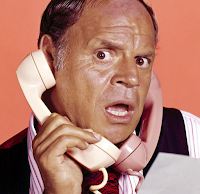It's another entry in Panel Patter's not Patented SPX Spotlight feature! We're ready to provide you with some great pre-show coverage for one of the best comic shows in the United States! In a show with nearly 700 exhibitors, we'll help you find some of the best! You can read all our SPX Spotlights from 2017 and prior shows here.
Ben Passmore wants you to know that your black friend isn’t who or what you think he is. In his comic Your Black Friend, Passmore pokes holes in the idea that you can think you know someone just by his or her appearance and skin color. But it’s more than just a black vs. white comic book as Passmore writes more about experience than about conflict. Starting with an encounter of a black man hearing a white woman crow about calling the cops on a (to her) suspicious man, Passmore traces the expectations that this black man faces daily from both white and black people. Your Black Friend shows how someone who exists as an individual becomes a different symbol to different people.
While the central conceit of this comic is around a black vs. white encounter, Passmore is far more interested in exploring how it’s impossible for a black man to live up to the expectations and fears that the world, made up of both black and white people, has for him. He’s a criminal, a warrior, a thug, an ambassador and a symbol. Your Black Friend is expected to be every black man. Passmore shows how this is really just a guy, trying to have a drink and just live his own life, not defined by color but defined by his own personhood. Even the title Your Black Friend is accusatory because Passmore introduces the idea that this man isn’t just your friend but that he ticks off some box about quotas or requirements you may have for friends.
I really wanted to read Your Black Friend and say “but that’s not me.” It’s not just that Passmore is telling a story about a black man’s experience but he puts you, the reader, into the book with that title. Passmore puts you into the position of being the one who has made these stereotypical assumptions about this man that’s supposedly your friend. On a very basic level, it’s easy to read Passmore’s story as just a “don’t judge a book by its cover” type of story that is very incomplete ways could be told of Muslims, Indian, Chinese or nearly any people and there are elements of truth to that. But Passmore is speaking from a very specific racial point of view and also a very American point of view so that his comic
As Passmore uses this comic to describe the mind frame of a young, black man, he shows a man who’s ultimately confused because he’s not what his white friends or his black think he is or should be. Your Black Friend is about the horrible weaknesses of trying to define anyone by things like appearance or generalities and no one is spared from Passmore’s critical eye. Reading this book and thinking “that’s not me” causes all kinds of confusion (“but maybe it is me” being the most troubling one) and that’s probably what Passmore wants. Through that confusion, Passmore is asking us to not judge or draw conclusions on something that should be as inconsequential as skin color and appearance.









